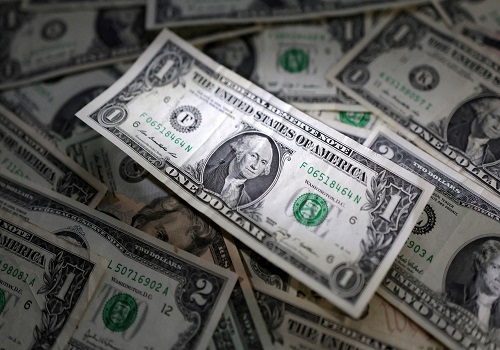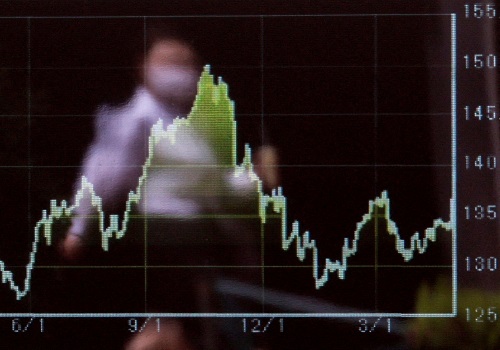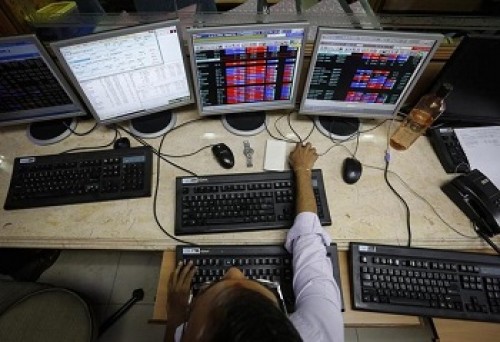Opening Bell: Markets likely to get pessimistic start amid mixed macro-economic data

Follow us Now on Telegram ! Get daily 10 - 12 important updates on Business, Finance and Investment. Join our Telegram Channel
Indian markets reversed early losses to end modestly higher on Friday despite many uncertainties on the global front. Today, start of the new week is likely to be pessimistic amid muted global sentiment due to rising worries over a possible US debt default. Investors will be also keeping eye on the WPI data for April to be out later in the day. Traders also will be analyzing the Congress party's sweeping win in the Karnataka Assembly elections. Traders will be concerned as India’s industrial production growth fell to a five-month low of 1.1% in March 2023. The poor performance of the power and manufacturing sectors was primarily responsible for this decline, with the manufacturing sector growing only 0.5% compared to 1.4% a year ago. Power generation declined by 1.6% in March 2023, compared to a growth of 6.1% last year. However, some respite may come with easing inflation. India’s retail inflation rate in April fell to an 18-month low on the back of a high base and easing price pressures across categories, giving the central bank elbow room to maintain an extended pause on policy rates. Foreign fund inflows likely to aid domestic sentiments. Foreign institutional investors (FII) bought shares worth Rs 1,014.06 crore on May 12, provisional data from the National Stock Exchange showed. Also, India's foreign exchange reserves rose by U$7.196 billion to $595.976 billion in the week that ended on May 5, data released by the Reserve Bank of India showed. Meanwhile, Capital markets watchdog Sebi has floated a consultation paper for regulating all web-based platforms offering fractional ownership of real estate assets to protect small investors. There will be some reaction in defence industry stocks with report that, the Ministry of Defence (MoD) on Sunday promulgated a list of 928 strategically important spares and components that would face curbs on their import, With the aim of promoting aatmanirbharta (self-reliance) in weaponry and defence equipment and minimise imports by defence public sector undertakings (DPSUs). Auto industry stocks will be in focus with Passenger vehicle sales continued to be on a double-digit growth trajectory even as the country transitioned to BS VI phase II emission norms from April. In fact, domestic sales (wholesales) of passenger vehicles this April was the highest recorded in any April, said the Society of Indian Automobile Manufacturers (SIAM). Moreover, Tube Investments, Astral, Coromandel International, Pfizer, PVR Inox and a slew of other companies will announce their quarterly results later in the day.
The US markets ended lower on Friday led by weaker megacap shares following their recent rally, as data showed U.S. consumer sentiment dropped to a six-month low. Asian markets are trading mixed on Monday as investors braced for a China policy rate decision and economic data this week, while awaiting a host of U.S. Federal Reserve officials to speak to vindicate market pricing of rate cuts this year.
Back home, Indian equity benchmarks reversed intraday losses and ended marginally higher on Friday, led by gains in Auto, Banking and Financial Services stocks. Markets made a negative start as traders remained on sidelines ahead of macro-economic data -- consumer price index (CPI) and Index of Industrial Production (IIP) -- due to be released later in the day. There are expectations that April retail inflation to have cooled as rises in food and fuel prices moderated. However, key indices trimmed most of their initial losses in morning deals, taking support from CRISIL Rating’s statement that India’s vulnerability to global shocks is expected to reduce in FY24 as the Current Account Deficit (CAD) improves amid challenging external financing conditions. CAD is India’s major short-term external liability, affecting the exchange rate and investor sentiment. After peaking at 3.7 per cent of Gross Domestic Product (GDP) in the second quarter of the previous fiscal (FY22), CAD shrank significantly to 2.2 per cent in the third quarter of FY23. This decline was driven by falling oil imports, boost from services exports, and rising remittances. Buying activity witnessed in the second half of the session pulled benchmark indices to the positive zone. Traders found support with provisional data from the National Stock Exchange showing that foreign institutional investors (FII) bought shares worth Rs 837.21 crore on May 11, 2023. Traders were taking a note of private report that the commerce ministry has stepped in to cut India’s ballooning trade deficit with Russia, asking all Export Promotion Councils (EPCs) to identify additional products India can sell to Russia to expand its own exports. Meanwhile, another private report showed that Indian-owned companies operating in the UK have hit a record high of 954 this year, registering a significant increase over the previous year. Finally, the BSE Sensex rose 123.38 points or 0.20% to 62,027.90 and the CNX Nifty was up by 17.80 points or 0.10% to 18,314.80.
Above views are of the author and not of the website kindly read disclaimer










Tag News

Weekly Market Analysis : Markets strengthened recovery and gained nearly 2% in the passing w...














